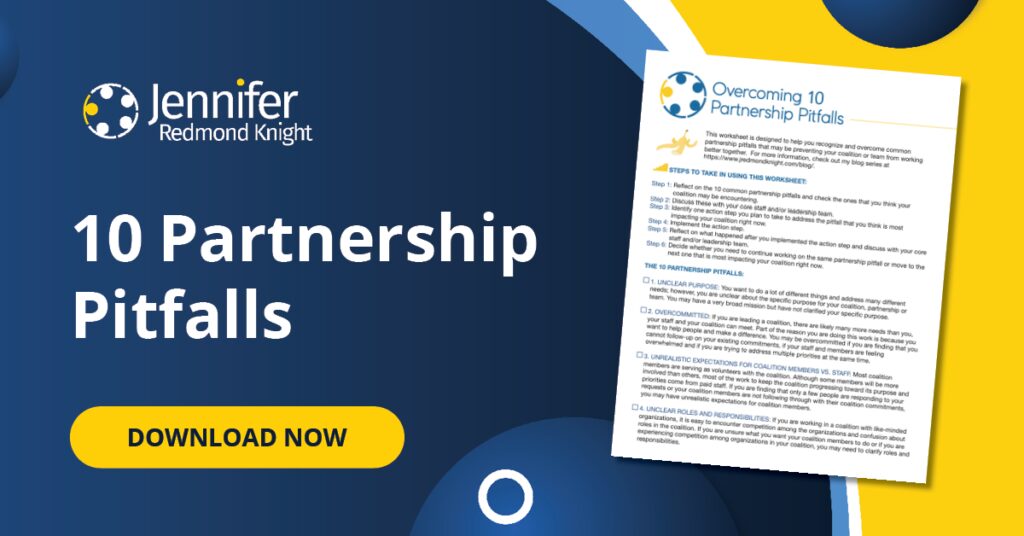One of the most rewarding things about coalition work is developing, growing and sustaining relationships. If we are honest, relationships can also be challenging (some more than others!) 🙂 When we work with diverse relationships and engage with people who may think differently than we do, it’s only a matter of time before we will offend someone. While it is incredibly uncomfortable and none of us prefer to experience the challenging side of relationships, many of our strongest relationships develop when there is tension, misunderstanding, repair and restoration. Join me this week as I provide three things to practice when you have offended someone or are experiencing relationship challenges.
Humility
A few weeks ago, I was communicating with a long-time partner via email and I offended her with my lack of awareness (or lapsed memory) regarding some important work that her organization does.. I did not do anything intentionally and was actually surprised when I realized my questions offended her. Thankfully, she let me know that she was offended and this gave me a chance to respond to her concern. At that moment, I had a choice. I could either try to convince her that I was right or I could show humility and try to restore the relationship. I chose to try to understand her perspective (yes, Stephen Covey again…), recognized how this may have offended her and apologized. She received my humble apology and our relationship was restored. Not every situation will be resolved quickly; however, humility is a very powerful approach when we are struggling with any relationship – coalition or otherwise!
Reflection
When we have relationship challenges, it is easy to focus on fixing them or figuring out who was right and who was wrong. Although we may want to run to “action,” when we take the time for reflection, we will usually come up with a much better solution than if we send that email, make the phone call or jump to acting on the problem right away. Humility and reflection are very connected. Sometimes humility can help us take the time to reflect while other times reflection can remind us to practice humility. This reflection can involve writing (journaling), walking (running), breathing, stepping away from the situation for a time or other methods that may work for you. I have been reading a really interesting book called “Burnout” and they talk about the need to “complete the stress cycle” so that you can work through difficult emotions. One of the most effective is through physical activity. When we take time to be active, our minds will have an opportunity to reflect and expand creativity. Once we have reflected, this can help us choose a more relationship-restoring action rather than relationship-destroying action.
Learning
After practicing humility and reflection, we can take the next step – learning. When we learn from our mis-steps, misunderstandings, difficult conversations and challenging relationships, we grow and our relationships improve. This learning impacts not only the person we offended at the moment but also how we interact with others. I still remember the first time(s) that I offended someone who is now a life-long friend. Although it took me a while to move to humility at the time (15 years ago), I eventually realized that I had a lot to learn from her and chose to be more open and listen. Once I adjusted my perspective from being “right” to learning and growing, we were able to become friends. This friendship has expanded my understanding, my perspective, my future relationships and my ability to be more effective in coalition work with diverse partnerships.
While I know none of us want to talk about our challenging relationships, they really can be an opportunity to grow and be more impactful with our coalition work when we practice humility, reflection and learning.
What about you? Which one of these three (humility, reflection or learning) are you going to practice this week as you reflect on a particularly challenging relationship?
If you liked today’s post, you will also be interested in my free resource: 10 Partnership Pitfalls and How to Overcome Them. Download here!

Photo by Afif Kusuma on Unsplash
